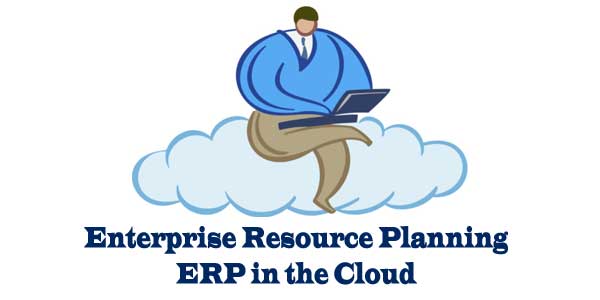
What is an ERP System?
Enterprise Resource Planning (ERP) is a business management system, which is gaining great value in the industry, especially with small and medium enterprises (SMEs). Enterprises require planning, resource allocation, and project goals to achieve success. The ERP software plays a very crucial role in driving businesses towards success. Its most important benefits to businesses are the integration, automation, and ability to create processes that simply allow companies to know how efficiently they are working.
To achieve success, it is very essential to make sure that the business data is safe and there is sufficient computing resources and bandwidth to offer results on time.
Among the Top ERP System Providers are “Tally Solutions” & “SAP” which successfully launched their own powerful Enterprise Resource Planning (ERP) software empowering many businesses and is continuing.
Key Advantages/Benefits of ERP System to SMEs:
- Unified Management: ERP software is capable of integrating and standardizing various departments, and even multiple branches, which allows company managers to view the individual and united results for unified management.
- Integrating Financial Information: The company managers can track the overall performance of the business very easily, such as business-contributed revenues and the business resources consumed by the type of account.
- Controlling Customer Orders: The ERP systems allow for centralizing the information so that businesses can keep track of customer orders along with more security and coordination of inventory, production, and transportation in a time-saving manner, to obtain the history of every customer.
- Standardizing and Accelerating Processes: ERP systems offer good business practices in standardized ways. The standardization of processes and using a single integrated system helps companies in saving their valuable time, increase productivity, and reduce manual controls.
- Reduce Errors: The ERP systems simplify the visibility of flow processes within the company and aid in keeping track of their existence. Such information helps users identify the necessary actions to be taken, as well as to better plan the resources required for its implementation as well as reduces errors that may cause stagnation of capital purchases due to poor plan.
Other Benefits of ERP System to SMEs:
- Process automation and manual controls;
- Complete control over the company’s operations;
- Reduces costs and risks;
- Optimizes the flow of company information;
- Gives a real-time view of the accuracy and security of data;
- Fraud reduction;
- Rids from re-work;
- Decreases the use of printing paper.
How Cloud Can Help In Solving Business Issues?
Today, cloud computing is one of the buzz topics in the technology industry. Nowadays, every IT company provides some kind of cloud-based services or products for IT experts. Due to the various advantages, companies have realized that cloud-based services can benefit in reducing internal IT costs by decreasing expenditure on software licenses, hardware, storage, and the required maintenance for the same.
Today, every business requires a business management system (ERP) for success, but, can’t afford it due to the high costs associated with it. However, it doesn’t mean that there isn’t a solution to get rid of such issues. Cost-effective cloud-based solutions available in the market such as “eNlight Cloud by bodHOST.com” can save up to 60% costs of the company, as it offers a “Pay-as-per-Consumption” billing model. Unlike other fixed-rate web hosting plans, eNlight cloud customers are charged only for the resources utilized by their applications.
Hosting an ERP System in the cloud environment offers various advantages to SMEs. Some of them are explained below.
Advantages of Hosting ERP in the Cloud:
Cost Savings: The initial investment cost required for hosting ERP in the cloud is so minimal, that enterprises can afford it very easily, aiding them to reduce internal IT costs.
Access Freedom: With solutions like eNlight Cloud, company managers and users can access the ERP system from anywhere, instead of operating it from their company desks.
Rids of Maintenance Issues: Since cloud providers hold the responsibility of upgrading software with updated versions and other maintenance issues of the applications, enterprises no longer have to be concerned about it. ERP in the cloud permits companies to concentrate on their core business and productivity rather than managing IT infrastructure.
Improved Performance and Accessibility: Hosting ERP in the cloud offers you an improved performance as more data is grasped by virtual servers and helps it navigate easily, providing improved accessibility.
More Storage: It offers increased cloud storage space for companies to store their data as compared to private systems.
High Scalability and Flexibility: Hosting ERP in the cloud enables you to scale accordingly, providing you greater flexibility to add more users and data, as the customer’s business expands. It also offers real-time data at any time, anywhere provided there is an Internet connection.
Security: Since security is a major concern for any business; eNlight Cloud stores client’s data by implementing multiple security layers and measures via an encrypted network, which includes not only isolation of storage but also adequate provisioning of resources to avoid resource sharing.